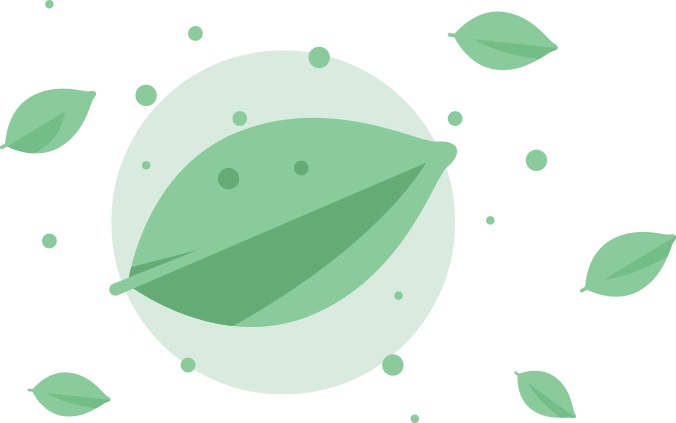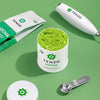
1. Energy Without the anxiety, crash or jitters
The combination of caffeine with l-theanine in matcha green tea provides a stable and extended boost of energy without the anxious jitters or side effects like you might have previously experienced with coffee and energy drinks.
The caffeine will gently pick you up, provide you with an extended energy boost and then will let you softly back down to earth.
Here's the Secret:
Matcha is 100% powdered green tea that gives you clean energy without excessive caffeine, sugar content and unknown chemicals. But don't worry, one scoop of Tenzo Matcha still contains same caffeine as one shot of espresso, but the energy lasts for hours!

2. Matcha For Focus
Some things simply require a lot of thought. The combination of caffeine and l-theanine do wonders for concentration* (11). L-theanine boosts the production of alpha waves in the brain. These alpha waves encourage relaxation and induce a profound feeling of mental clarity and a more alert state of mind - the same mental state can be found in meditation and yoga practice. You know what you’re doing. Matcha is here to make sure everybody else does, too.
Less Caffeine, More Energy
Learn More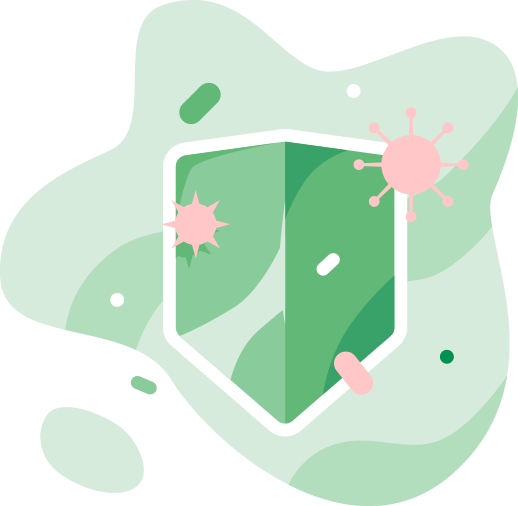
3. Matcha: Great For Immunity
Concerts are sick. Your friend’s new mixtape is sick.
Being sick, however, is not sick. Matcha green tea Fortifies the immune system and limits the invasion and growth of viruses and bacteria in the body. The special catechin antioxidant called EGCg is effective in fighting and protecting the body against various bacterial and viral infections* (21). EGCg binds to cells in the body and inhibits the growth of many disease-causing microorganisms including influenza A virus, Hepatitis Virus, Herpes Virus, and the bacteria that causes Strep Throat.
Tip: Learn to make a Green Tea Shot for a quick immunity boost! (don't worry - it's easy)

4. Matcha Burns Calories
Want to go the extra mile? Try adding matcha to your weight loss program and see what happens. EGCg and caffeine work together to naturally boost your metabolism and increase the number of calories you burn on a daily basis.
Matcha green tea utilizes fat as an energy source. Green tea catechins activate the body’s thermogenic fat burning activity* (13). In a 12-week study, it was found that ingesting green tea led to a significant reduction in BMI, waist circumference, body fat mass, and subcutaneous fat area of healthy Japanese men and women* (14). Bet your last workout wasn’t that easy!

5. Matcha May Improve Heart Health
Stay calm for this: Matcha green tea can help protect you from a heart attack or stroke* – and matcha green tea powder may be much more effective than steeped green tea when it comes to heart health (20). Introducing matcha green tea into your regular diet may significantly lower your risk of having a stroke or heart attack.
Of course, matcha isn’t all you need for a healthy heart. Experts recommend a healthy and regular eating pattern that includes whole grains, fruits and vegetables, fish, and foods that are low in sugar, fat, sodium and cholesterol. Eating right and exercise are key to a healthy heart!

6. Matcha Makes You Smarter
One study looked at how people performed on a series of tasks designed to measure brain performance. Some participants consumed either matcha tea or a bar containing 4 grams of matcha, while the control group consumed a placebo tea or bar (22). The participants performed a set of cognitive tests assessing attention, information processing, working memory, and episodic memory (23) (24). The researchers found that matcha caused improvements in attention, reaction time and memory, compared to the placebo*.
Another study showed that consuming 2 grams of green tea powder daily for two months helped improve brain function in elderly people (25). After drinking 2 grams of matcha green tea every day for 3 months, the participant’s mental state examination scores improved significantly*. If only we had Matcha in high school!
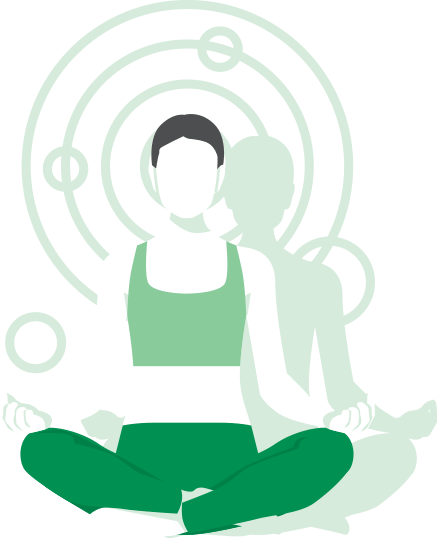
7. Matcha For Calmness
L-theanine is a rare amino acid found in high concentrations in matcha that crosses the blood-brain barrier and promotes a feeling of relaxation while reducing mental and physical stress* (9). L-theanine works with caffeine to provide a stable extended boost of energy with none of the usual jittery side effects of caffeine and stimulants. It’s a mouthful, but l-theanine has a lot to do with the relaxed state of mind you experience when you’re on matcha. Fun fact - l-theanine also gives Tenzo matcha its subtle sweet flavor* (10).
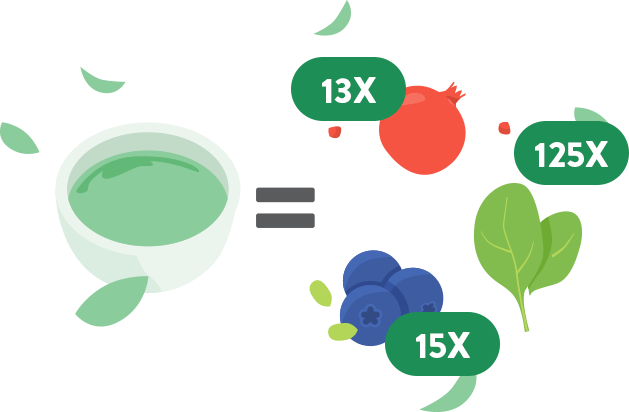
8. Antioxidants
Matcha Green Tea has the highest antioxidant rating of all major superfoods, and there’s even a test to prove it. According to The ORAC (Oxygen Radical Absorption Capacity) test, which measures the antioxidant levels in foods, Matcha Green Tea measures 1384 units per gram* (2). That’s 13x the antioxidants of pomegranates, 15x the antioxidants of blueberries, and 125x that of spinach. Say hello to feeling invincible!
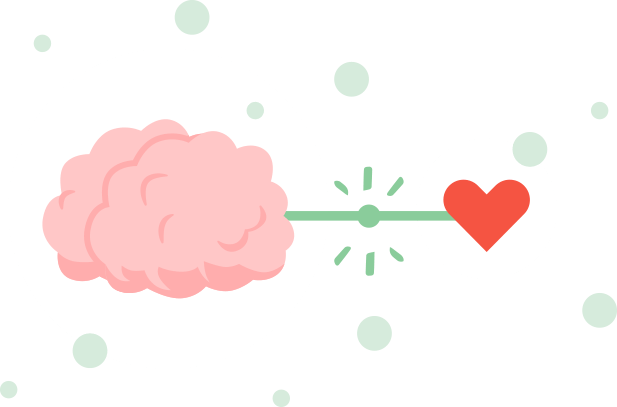
9. Catch The Catechins
Catechins are a rare group of molecules that have proven to be incredibly potent and beneficial antioxidants* (3). One Specific Catechin, called EGCg, makes up a large percentage of the total catechins in matcha green tea. This super molecule aids in weight loss and promotes a healthy brain and heart health. Matcha green tea and cocoa are the two best places to find catechins - Tenzo Tea and Chocolate!
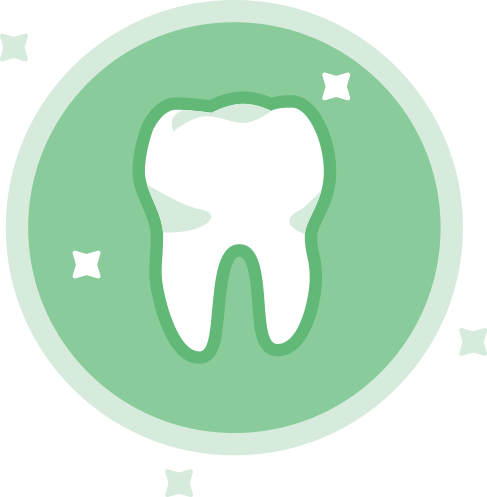
10. Matcha For Oral Health
90% of bad breath comes from bacterial cavities in your mouth. This is where bacteria breakdown sulfur-containing amino acids into foul-smelling volatile sulfur compounds (VSCs) (16). If the bacterial colonies in your mouth get out of control, bad breath will begin to run wild. You don’t want that (and neither do we).
Good news: When tested against gum, mints and other foods, green tea showed the largest reduction in the concentration of both H(2)S and CH(3)SH gases* (17). The antibacterial properties of green tea keep the bacteria (and your breath) at bay. Land ho.
Green tea vs coffee?
Coffee is very acidic, which means bacteria reproduce faster than your morning commute (18). When you add milk, creamers and even non-dairy creamers to your coffee, the overgrowth of bacteria in your mouth continues to get worse.
Matcha keeps your teeth strong and healthy. If you drink your matcha green it will help prevent the formation of cavities by preventing plaque build-up and inhibiting bacteria* (19). Find a dentist who wouldn’t recommend that.
Ready to make Matcha at home?
Yes! Let's do this
11. Matcha May Help You Lose Weight
Can you lose weight with matcha? Matcha contains EGCg (epigallocatechin gallate), which increases CCK (cholecystokinin), the hormone responsible for making you feel full* (12). Drinking matcha between meals will help you feel full and resist those sneaky snacks that are full of calories.
Psst.. Sometimes we overeat when we’re cranky. Drinking matcha puts you in a better mood, makes you feel more relaxed and results in happiness. As a result of this phenomenon, you won’t need to snack or overeat to feel good.
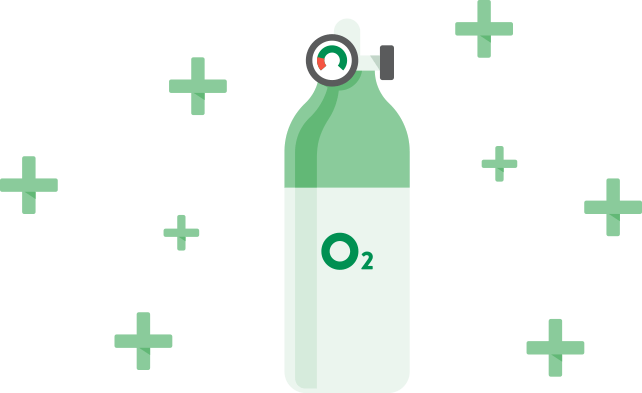
12. O2 Stress?
Oxidative stress is a real thing, and it occurs when oxygen-free radicals overwhelm the body and damage cells. This can lead to a wide range of illnesses and diseases including cancer, gene mutations, Parkinson’s disease, Alzheimer’s disease, heart attack and heart failure. The antioxidants in matcha actively seek out these molecules in the body and neutralize their harmful effects* (4)! It’s easy to prevent oxidative stress. Just be sure to have a constant supply of naturally occurring antioxidants in your diet. Anti-oxidants … Get it?
Experience the benefits of Matcha.
shop now
13.  Your Skin
Your Skin
One of the many green tea benefits has to do with the fact that matcha is great for your skin! You can even make a matcha face mask and use it in all sorts of ways for beauty and skin care. The catechins in green tea work to trap and deactivate free radicals in the skin, which slows down signs of aging. Applying matcha directly to the skin in the form of a mask is one of the best ways to fight acne and symptoms of rosacea* (5).
Reduce Redness
Matcha powder has many anti-inflammatory properties*, especially EGCg, that reduce the redness associated with chronic skin conditions such as rosacea and acne. It is gentle enough for all skin types and brings soothing relief. Not only will your skin feel better, you’ll look better, too! Matcha diminishes redness, meaning you can walk out of your house with a face of confidence (6).
Improve Your Complexion
Matcha powder does crazy things to keep your complexion fresh and healthy. Not only does it reduce inflammation, it also offers a one-two punch for the skin to exfoliate and eliminate dead skin cells, then rejuvenate the underlying skin to improve your complexion. The only thing you’ll see is a better looking version of yourself!
“You Look Great!”
Thanks! That’s because matcha powder diminishes the signs of aging. Let’s face it. This is one of the biggest reasons we take care of our skin. Matcha protects against UV damage and improves skin elasticity* (7). It even stimulates elastin production to add volume to the skin and protects it against those free radicals cause sun damage, age spots, dry skin, and yes, wrinkles.
Your Face is Not an Oil Refinery
And it doesn’t have to feel like one. Oily skin is one of the leading reasons why we have breakouts. The good news? Matcha treats oily skin. The tannins in matcha actually shrink pores and reduce the production of oil associated with acne. Matcha is especially beneficial as it removes oil from the skin and slows the production of the oil causing the acne.
All Skin Types, Welcome
Matcha masks are made from food, not chemicals, which makes it about the most natural skin care product out there. That’s why it is gentle enough for younger skin yet strong enough for skin that needs a little boost to look better. Not all heroes wear capes.
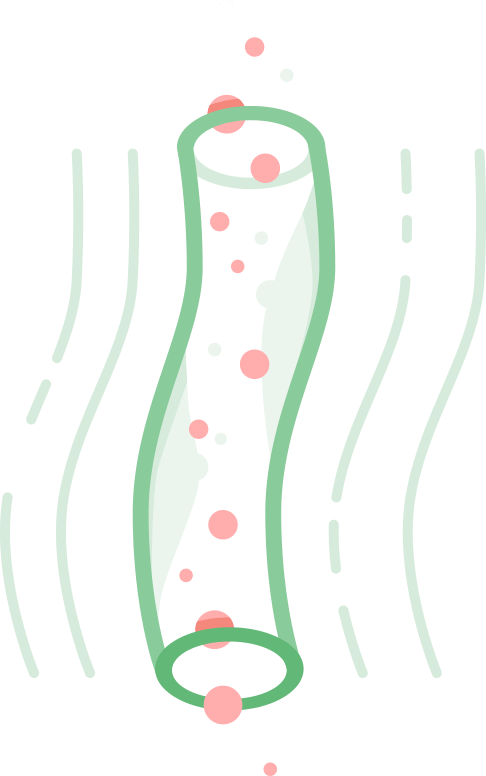
14. Better Cholesterol
Studies of different populations revealed that people who drink Matcha green tea on a regular basis have lower levels of LDL (read: bad) cholesterol*, while at the same time displaying higher levels of HDL (read: good) cholesterol. HDL sweeps away bad cholesterol from arteries, preventing atherosclerosis. The clogged arteries that result from atherosclerosis can lead to a heart attack or stroke. Long story short, avoid LDLs.
Proof: The first human study to show that green tea reduced LDL cholesterol was conducted by Vanderbilt University Medical Center in 2003. During a 12-week trial, study participants took 375 mg capsules containing an extract of green tea. The levels of polyphenols in the capsules were equivalent to the amount found in 35 cups of green tea or 3.5 cups of matcha. The results showed a 16 percent reduction in cholesterol* - even the researchers were surprised (15)!
Want to try the healthiest energy on the planet?
claim your matcha now!
16. Remember When…?
Whatever it was, the answer is yes. A study performed by the University of Basel, Switzerland found that green tea increased the working memory performance of participants and increased the brain’s effective connectivity, leading to improvements in cognitive performance* (26). The results of the study showed that those who drank matcha performed better on the short-term memory tests and showed higher brain function in the frontal and parietal lobes of the brain. The frontal lobe is responsible for the majority of advanced thinking while the parietal lobe in the back of the brain handles the cognitive understanding of speech. The MRI scans revealed that those who drank matcha had more interaction between the two areas, boosting information recall and the speed of which they processed information.

17. Your Brain = 
Green tea polyphenols are now being considered therapeutic agents in well-controlled studies, aimed to alter brain aging processes and to serve as possible neuroprotective agents in progressive neurodegenerative disorders*.
If that sounds clunky, here’s why it’s important: Those neurodegenerative disorder include Parkinson’s and Alzheimer’s diseases (27). And perhaps Matcha Tea can protect against them*.

18. Matcha For Arthritis
Matcha tea is one of the most-studied drinks when it comes to its benefits for arthritis patients. Green, black and white teas are all rich in polyphenols – compounds from plants that have strong anti-inflammatory effects* (28). Studies have shown that green tea also helps preserve cartilage and bone.
Green tea has polyphenols, antioxidants believed to reduce inflammation and slow cartilage destruction. Studies also show that another antioxidant in green tea called epigallocatechin-3-gallate (EGCg) blocks the production of molecules that cause joint damage in people with rheumatoid arthritis (RA). Antioxidant-rich green tea may be useful in the prevention of onset and severity of arthritis* (29). Whether your wrist is sore, or you just don’t wait it to be, Good Matcha will be sure to make you feel better!

19. Vitamins & Minerals
Both are important, but a lot of us forget to take them. Tea is one of the most-studied drinks when it comes to its benefits for arthritis patients. Green, black and white teas are all rich in polyphenols – compounds from plants that have strong anti-inflammatory effects. Studies have shown that green tea also helps preserve cartilage and bone mass. Got tea?
VITAMIN A (CAROTENE)
Several types of carotene exist in tea leaves but B-Carotene is the most common. B-Carotene converts to Vitamin A once absorbed in the body and has shown to help promote better vision and eliminate free radicals with its strong effects as an antioxidant.
VITAMIN B1 (THIAMINE)
Thiamine is an essential nutrient because people are unable to produce it within the body. It’s necessary for the proper metabolism of sugar, amino acids, and lipids. Thiamine is especially important for people who depend on rice as their primary source of nutrition.
VITAMIN B2 (RIBOFLAVIN)
Riboflavin helps cells utilize oxygen most efficiently and is necessary for normal cell growth like red blood cell formation and antibody production. It also helps tissues of the skin, hair, nails, and hair utilize oxygen more efficiently.
VITAMIN B3 (NIACIN)
Niacin helps the body break down carbohydrates, fat, and proteins to release energy. In addition, it has a wide range of functions that serve to help the skin, digestive system, and the nervous system. Studies that show niacin can boost levels of good HDL cholesterol and lower triglycerides. There is also good evidence that it helps to reduce the hardening of arteries and can lower the risk of a heart attack.
VITAMIN C
Vitamin C, also known as ascorbic acid, is an antioxidant vitamin that eliminates free radicals from the body. It is an essential nutrient involved in the repair of tissue and the production of specific neurotransmitters. In addition, Vitamin C has antiviral and antibacterial properties that assist in preventing sickness and is important for a healthy immune system. Fermented teas (like black and oolong tea) contain far less Vitamin C because it is destroyed in the fermentation process.
VITAMIN F (FLUORINE)
Fluorine is particularly abundant in the Camellia family of plants. It adheres to the surface of teeth and produces an antioxidant coating that helps the fight against cavities.
VITAMIN P (FLAVONOIDS)
Tea is one of the most-studied drinks when it comes to its benefits for arthritis patients. Green, black and white teas are all rich in polyphenols – compounds from plants that have strong anti-inflammatory effects. Studies have shown that green tea also helps preserve cartilage and bone.
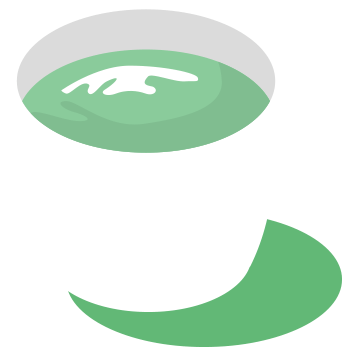
20. Matcha Is Easy To Make and tastes great
Making Matcha couldn't be easier. The goal is to suspend your beautiful green tea powder with water. The best three ways to do this are with a bamboo whisk, a shaker bottle or blender.
Matcha Latte: To make a matcha latte, start with a Tenzo shot and add your choice of milk to top it off.
Matcha Lemonade: To make a Matcha Lemonade, start with a Tenzo shot, add some ice and fill your glass with lemonade.
We put together a ton of easy matcha recipes that you can make in 5 minutes or less. You can find them here.

21. The Best Matcha Tastes Great
Green is the embodiment of health, but just because matcha looks healthy doesn’t mean it has to taste like grass!
Some teas require sugar, milk and lemon to make them drinkable, but the best matcha tea is wonderful on its own. Ceremonial matcha has a delicious vegetal flavor that is complemented by savory umami notes and tastes great both hot and over ice. So sit back, relax, and enjoy a delicious cup of matcha green tea.
3 Ways to Make Matcha

Whisk It!
Making matcha with a traditional bamboo whisk is a great way to be present and find a mindful moment with your matcha. The fine bamboo prongs on the whisk do a wonderful job at breaking up the fine clumps of matcha and creating a smooth cup with a frothy finish.

Shake it!
If you are on the go or in a hurry, making matcha can be as easy as combining matcha powder with water in a bottle and giving it a good shake. We recommend using a blender bottle to make sure you break up any fine clumps. But be careful!! Use cold water for this method of preparation. Shaking your matcha with hot water will cause your bottle to EXPLODE.

Blend it!
If you are at home and don’t have a whisk you can add a scoop of matcha with water in your blender and blend away. Matcha also makes for a healthy smoothie!
Where To Buy Matcha Green Tea
Looking for an amazing everyday matcha green tea powder?
Look no further than Tenzo Tea. We might be a bit biased, but we also flew across the world to organically source the best matcha on the planet from local farmers in Kagoshima, Japan. Tenzo Tea is ceremonial in quality, emerald green in color and delicate and smooth in taste.
*The statements on this page have not been evaluated by the Food and Drug Administration.
This product is not intended to diagnose, treat, cure, or prevent any disease.
- https://www.jstage.jst.go.jp/article/jhej/61/6/61_349/_article/-char/en/
- https://teaologists.co.uk/blogs/the-daily-matcha-habit-blog/45157569-is-matcha-tea-healthier-than-green-tea-teaologists-answer
- https://www.ncbi.nlm.nih.gov/pubmed/12587987/
- https://www.ncbi.nlm.nih.gov/pubmed/11239828
- https://www.ncbi.nlm.nih.gov/pubmed/28036057
- https://www.ncbi.nlm.nih.gov/pubmed/12682270/
- https://www.ncbi.nlm.nih.gov/pmc/articles/PMC3390139/
- https://www.ncbi.nlm.nih.gov/pmc/articles/PMC4462044/
- https://www.ncbi.nlm.nih.gov/pubmed/18296328
- https://www.ncbi.nlm.nih.gov/pubmed/28036057
- https://www.ncbi.nlm.nih.gov/pubmed/18681988
- https://www.ncbi.nlm.nih.gov/pmc/articles/PMC4566026/
- https://www.ncbi.nlm.nih.gov/pmc/articles/PMC3649093/
- https://www.ncbi.nlm.nih.gov/pubmed/17557985
- https://www.mc.vanderbilt.edu/reporter/index.html?ID=2745
- https://www.tandfonline.com/doi/abs/10.1080/10426507.2012.736894
- https://www.ncbi.nlm.nih.gov/pubmed/18388413
- https://www.ncbi.nlm.nih.gov/pmc/articles/PMC4283437/
- https://microbewiki.kenyon.edu/index.php/Dental_Caries_Prevention_by_Camellia_sinensis
- https://www.ncbi.nlm.nih.gov/pmc/articles/PMC2748751/
- https://www.ncbi.nlm.nih.gov/pubmed/18388413
- https://www.ncbi.nlm.nih.gov/pubmed/28784536
- https://www.sciencedirect.com/topics/agricultural-and-biological-sciences/working-memory
- https://www.sciencedirect.com/topics/agricultural-and-biological-sciences/episodic-memory
- https://www.ncbi.nlm.nih.gov/pubmed/25268837
- https://www.unibas.ch/en/News-Events/News/Uni-Research/Green-Tea-Boosts-Your-Brain.html
- https://www.ncbi.nlm.nih.gov/pubmed/15350981
- https://www.ncbi.nlm.nih.gov/pubmed/12682270/
- https://www.ncbi.nlm.nih.gov/pubmed/10200295/


